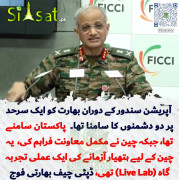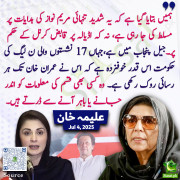jigrot
Minister (2k+ posts)
The Muslim world, rich in history and culture, faces a critical challenge in the form of internal betrayal, known as غداری (Gaddari). This betrayal is characterized by the failure of leaders and influential individuals to unite and protect the interests of Muslim nations when faced with external threats. Instead of standing together, some prioritize personal, political, or sectarian interests, which weakens the community as a whole.
While non-Muslim adversaries often coordinate their actions against Muslim countries, Muslim nations frequently remain fragmented and sometimes even allow external powers to exploit their divisions. This lack of unity means that when one Muslim country faces aggression, others may remain silent or complicit, failing to come to the defense of their fellow Muslims.
This internal betrayal results in significant consequences: political instability, foreign interference, economic hardship, and a diminished ability to act collectively on the global stage. The persistent divisions among Muslim countries hinder their strength and reduce their influence in international affairs.
Understanding غداری as a fundamental barrier reveals why the Muslim world struggles to present a unified front despite shared religious and cultural bonds. The absence of solidarity not only undermines security but also impacts the dignity and future of Muslim peoples globally.






































